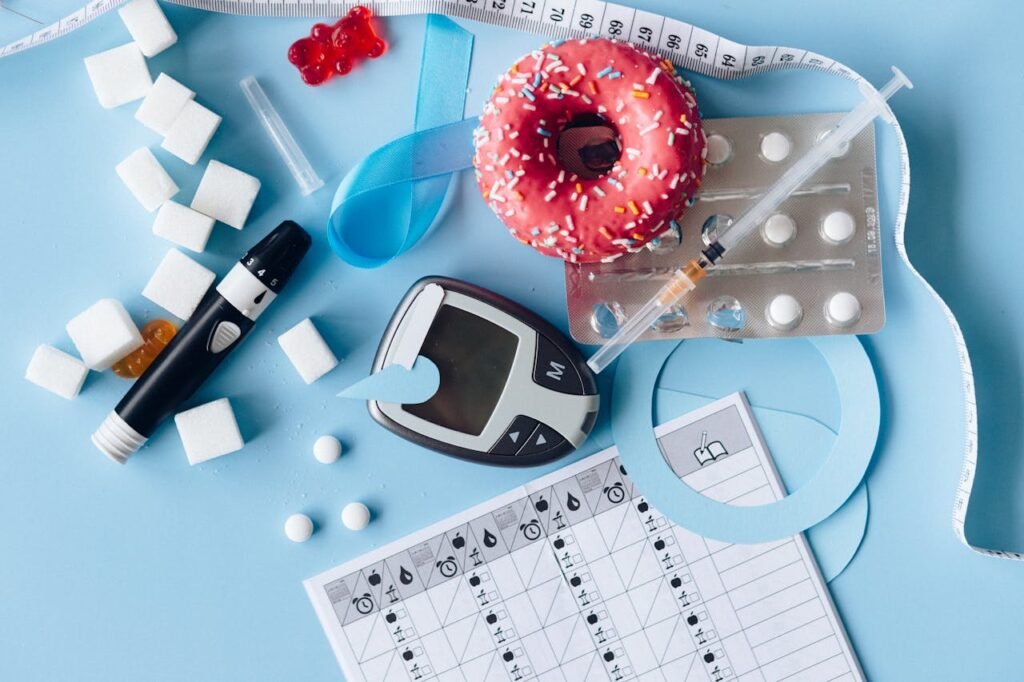Polycystic Ovarian Syndrome, is a very common hormonal disease that makes it difficult for women to getting pregnant with PCOS. This syndrome affects the reproductive abilities of a large number of women. For people who want to start their families, getting pregnant with PCOS is a major challenge. This comprehensive guide provides you with an in-depth look at PCOS and helps you understand the strategies that can help women getting pregnant with PCOS, despite the major reason for infertility in women.

Visit Website: Click here!
Realizing PCOS
What is PCOS?
It is a hormonal disease in which there are multiple symptoms, such as the ovaries of women having multiple cysts, a high level of androgens, and irregular or disturbed menstrual cycles. The hormones are the major reason behind this syndrome, as they directly affect their concentrations, which cause the disturbance in normal ovulation. It makes it difficult to conceive for women.
Symptoms of PCOS
There are many symptoms for PCOS, but the major include:
- Improper or absent menstrual cycles
- Unwanted hair growth on the body and face (hirsutism)
- Bad skin with acne and oily skin
- Weight gain or difficulty losing weight
- Reduction in hair or thin hair
- Dimming of the skin, especially along neck lines, groins, and beneath breasts

Visit Website: Click here!
Causes of PCOS
The exact causes of PCOS are unknown, but different factors can play a significant role in developing the condition, such as
- Insulin resistance
- Inflammation
- Genetics
How does PCOS affect fertility?
- Impact on Ovulation
This disease directly affects the normal ovulation process, as women normally have irregular ovulation or prolonged ovulation. So, it reduces the chances of a woman getting pregnant with PCOS.
- Hormonal Imbalance
PCOS increases the level of male hormones such as androgens in the body and disturbs the development and discharge of eggs during the ovulation process. As a result of hormonal imbalance, it is difficult to maintain a regular menstrual cycle, and women face difficulty getting pregnant with PCOS.
- Other fertility-related complications
PCOS puts the fertility factor at higher risk in women due to increased insulin resistance, metabolic syndrome, and obesity. Due to all these reasons, which are also interlinked, the chances of pregnancy are reduced.
Diagnosis of PCOS
- Medical history and physical examination
The first step for diagnosis is the physical examination and medical history of the patient. The gynecologist always emphasizes signs and symptoms such as unwanted hair growth, irregular periods, weight gain, etc.
- Blood tests and hormone levels
In the second step, different blood tests can be helpful in measuring the levels of insulin, glucose, and androgens. The high levels of hormones would be an indication of PCOS.
- Ultrasound Imaging
Ultrasound is also an effective method to determine the cysts in the ovaries, an indication of PCOS. It also gives the exact idea of endometrium thickness.
Visit Website: Click here!
A Comprehensive Guide Step By Step
- Lifestyle Modifications
Diet and Nutrition: Diet has a major role in managing the fertility issues related to PCOS. A balanced diet with all components, such as veggies, fruits, proteins, fiber, and healthy fats, can be helpful for maintaining the hormone level in the required amount. Insulin resistance can be controlled by avoiding refined sugars and replacing them with fruits and other foods to maintain the insulin level in the body.

Exercise and physical activity: Physical activity can help improve the PCOS condition, as it directly links to modern sedentary lifestyle patterns. Due to less physical activity in daily life, it is now important to spare time for exercise daily, as it is very important to reduce weight, promote ovulation, and control insulin resistance. So, it is helpful to have a walk, strength training, and cycling to ensure proper functioning of your body.
Weight Management: Getting pregnant with PCOS is always related to weight issues, as with PCOS, weight always increases, and with increased weight, it is difficult to conceive. So, if women lose mild weight, the chance of ovulation and fertility can be increased.

Visit Website: Click here!
2. Medical Treatments
Fertility Medicines: Many medications are helpful for getting pregnant with PCOS, such as Clomid (Clomiphene Citrate) and Femara (Letrozole), which are commonly used to induce ovulation. These medications are helpful to release eggs from the ovary timely for fertilization, even with the PCOS condition.
Insulin-Sensitizing Drugs: To conceive, it is important to have a regular menstrual cycle. So, metformin provides the best solution for insulin resistance maintenance that results in regular periods and ultimately improves the ovulation chance in women.
Hormonal Treatments: The main issue with hormonal imbalance is the increased concentration of androgens. For this, many oral contraceptives are used to make periods regular and less androgen protection to make getting pregnant with PCOS easier.
3. Assisted Reproductive Technologies (ART)
There are two techniques now commonly used to assist women in conceiving if they are having issues with conceiving.
- Intrauterine Insemination (IUI): IUI is a technique used to place the sperm directly into the woman’s uterus during ovulation to increase the chance of fertilization. This method is less invasive and also involves the initial steps of IVF.
- In Vitro Fertilization (IVF): IVF is the complete process of retrieving healthy eggs for fertilization and then fertilizing them in the lab with quality sperm. In the third step, the embryo is transferred again into the uterus for development. This method is more intensive than IUI, but the chances of success are higher for women getting pregnant with PCOS disorder.
Success Rates and Issues: The success rate for the above technologies varies according to different factors such as fertility issues, health, and age. The medical professional can make an early assessment of the success chances for patients.
4. Natural Medicines and Alternative Treatments
Herbal Supplements: Sometimes herbal medicine has a positive effect on treating the causes of PCOS, such as herbal supplements such as inositol and Vitex (Chaste tree berry). Consultation with a doctor is always important before the use of any supplement.
Acupuncture: Acupuncture is another technique used to balance the energy flow of the body and regulate the menstrual cycle. By maintaining periods, the ovulation is automatically regulated, and the chances of getting pregnant with PCOS become possible.
Mind-Body Techniques: Stress is one of the major reasons for hormonal imbalance. To release stress, meditation and yoga prove very effective for reducing stress and normalizing hormones for fertility.
Visit Website: Click here!
5. Mental and emotional care
Infertility is like trauma, and coping with this situation is very difficult. So, this affects the overall physical and mental well-being of women.
Assistance Groups and Counseling: Practical advice and mental support can be taken from different groups on social media, and different organizations are available that give free sessions of counseling for PCOS. Counseling can help, as sharing your condition with someone who understands your situation adds effective support and comfort for the patient.
Stress Management Techniques: Different methods, such as physical activity, regular exercise, and deep breathing, can help to manage stress effectively. Except for this, the habit of mindfulness is also the best practice that can change life with respect to stress management.

6. Responsibility of a Fertility Expert
When should I go for medical advice from a specialist?
Try for one year to conceive, but if it continues for more than a year, then there is time to go for a consultation with a fertility expert. The women above the age of 35 must go after a six-month unsuccessful try.
What should I expect from a fertility clinic?
Fertility clinics can provide the services of diagnosis of the exact problem regarding fertility and advanced reproductive technologies. An initial diagnosis requires a complete medical assessment of both partners.
Specified Treatment Plans
Fertility specialists after diagnoses will provide a personalized treatment plan for every couple based on the findings of the diagnosis, which include changes in lifestyle, medication, IUI, and IVF options.

Visit Website: Click here!
7. Avoiding Miscarriages with PCOS
Risk Factors for Miscarriage: PCOS is due to a severe hormonal imbalance that also affects pregnancy and is the major reason for miscarriages. So, women getting pregnant with PCOS are at high risk of miscarriage.
Preventive Measures: To avoid miscarriages, some preventive measures are important, such as maintaining blood sugar levels, reducing weight, and maintaining hormone balance.
Medical Interventions: In early pregnancy, some doctors prescribe progesterone or other medication to sustain it.

8. Sustaining a Healthy Pregnancy with PCOS
Regular Prenatal Care: In early pregnancy, more prenatal care is very necessary. So, there must be frequent visits to health care professionals for evaluation of both baby and mother health.
Managing PCOS Signs During Pregnancy: A balanced diet and regular exercise to stay active are very important for women getting pregnant with PCOS. Insulin resistance and weight issues must be addressed, as they have a severe negative impact on pregnancy.
Make sure fetal health and growth: It is important to monitor the blood sugar levels at each stage to ensure healthy baby growth with each developmental stage. Otherwise, many complications can disturb the normal growth of the fetus.

Visit Website: Click here!
9. Long-term health concerns
Managing PCOS After Pregnancy: Pregnancy can be successful by managing PCOS. If a woman has a successful pregnancy with PCOS, she will not be cured, even though she will have PCOS after pregnancy. Through the continuous management of PCOS with diet, exercise, and medication, it can be eradicated.
Lowering Long-Term Health Hazards: PCOS also makes people prone to some other diseases, such as heart disease, diabetes, and some other health issues. So, regular visits to the doctor and lifestyle changes are important.

10. Importance of Follow-Up Care
This disease needs long-term follow-up checkups with the doctor to manage it well, as it requires permanent changes in lifestyle and activity. Proactiveness makes the situation better in the PCOS case.
Conclusion
It is concluded from the above discussion that PCOS is the major reason for women getting pregnant these days. Getting pregnant with PCOS is almost impossible unless you figure out the disease and try to maintain it through your understanding. By making changes in lifestyle and medication, pregnancy is possible, but with a lot of risks. So, long-term management and persistent curing methods help to get the patient out of this disease and improve the fertility status of women who want to get pregnant with PCOS.
Visit Website: Click here!
FAQs
How much are the chances of getting pregnant with PCOS?
The chances of getting pregnant with PCOS are totally dependent on the circumstances of the individual, but many women can have conceptions with PCOS. As the lifestyle changed from sedentary to active, the chances of getting pregnant with PCOS increased.
Can only lifestyle changes support be getting pregnant with PCOS?
If the situation is not worse, then the initial changes in diet and lifestyle can enhance the chances of getting pregnant with PCOS. In some cases, if the woman gains too much weight or has insulin resistance, medication is mandatory to treat PCOS.
Is IVF the single choice for women with PCOS?
No, IVF is the last choice if the other methods are not successful for getting pregnant with PCOS. Some women conceive through medication, lifestyle changes, and IUI. If all these methods don’t work, then IVF is the final suggestion for getting pregnant with PCOS.
How much time is typically required to conceive with PCOS?
It depends on the severity of the disease and the persistence and patience of the patient. Sometimes women need a few months of treatment to get rid of this syndrome, and other times it takes more time.

